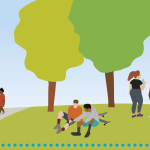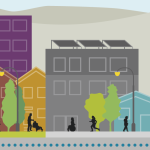Income & Housing Policies to Support Children’s Mental Health & Well-Being
How is economic security connected to children’s mental health?
The National Academies of Sciences, Engineering, and Medicine report that “on average, a child growing up in a family whose income is below the poverty line experiences worse outcomes than a child from a wealthier family in virtually every dimension, from physical and mental health, to educational attainment and labor market success.” This webinar will highlight income security and housing policies that can help lower poverty rates and strengthen families’ economic stability. Panelists will share strategies to strengthen the implementation of policies that support families and the connection of these policies to children’s mental health.
Watch our webinar recording for a discussion that examines the following questions:
- What do the data tell us about children’s mental health needs?
- Why are policies that strengthen families’ economic security important in equitably supporting children’s mental health?
- What evidence-based policies can support families’ income security?
- How is housing connected to income security and children’s mental health?
This webinar is the first episode in our series Meeting the Challenge: Evidence-Based Policies to Support Children’s Mental Health & Well-Being, which explores equitable policy options to promote children’s mental health.
Speakers
- Lara Robinson, behavioral scientist, Applied Research and Evaluation Team, Division of Human Development and Disability, National Center on Birth Defects and Developmental Disabilities, Centers for Disease Control and Prevention
- Leah Lozier, social science analyst, Program Evaluation Division, Office of Policy Development and Research, US Department of Housing and Urban Development
- Jessica Breslin, senior attorney, ChangeLab Solutions
- Melissa Marichal Zayas, attorney, ChangeLab Solutions
- Maya Hazarika Watts, managing director, ChangeLab Solutions (presenter & moderator)


